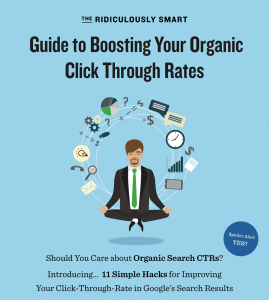As the holidays kick retailers into overdrive, now is the perfect time to discover what your competition is doing. Columnist Ryan Phelan shares four tips for setting up a competitive intelligence plan.
 The retail world is about to shift into overdrive. Having worked on both sides of retail marketing — brand and vendor — I know what’s coming: people screaming down the hall at you, late hours, early mornings and a general anxiety that would drive anyone to the brink of insanity.
The retail world is about to shift into overdrive. Having worked on both sides of retail marketing — brand and vendor — I know what’s coming: people screaming down the hall at you, late hours, early mornings and a general anxiety that would drive anyone to the brink of insanity.
What does the rest of the marketing world do while their retail peers go crazy?
If your company’s bottom line doesn’t depend on the fourth business quarter to deliver 20 to 30 percent of its revenue the way the retail sector does, your office probably gets a little quiet. Verticals like manufacturing, insurance and financial services don’t labor under the same financial imperatives.
So, now’s a great time to work up your plan for competitive intelligence. How are you tracking your competition and what they’re doing with their digital marketing programs?
Everybody (including retailers) can spy on their competitors
If you’re looking for strategic advice this time of year, you’re probably feeling a little left out because most pundits are focusing on helping retailers get more messages out and more revenue in.
Granted, the first tip below applies mainly to retailers, but I promise the rest of this post will be all about you, what you learn from your competition and how to apply it to your own marketing program to make it more useful for your customers and more effective for your company.
So, here we go. Four tips to set up a competitive intelligence plan:
- Retailers: Set up separate email accounts to track major competitors and decode their email initiatives.
If you aren’t looking at what your competition is doing with email, you’re missing out on a vital source of intelligence.
Set up two or more email accounts only for subscribing to and interacting with your competitors’ messages. Use one account to collect messages without acting on them. Use the other to open, click on and act from those messages as a regular consumer would.
Open some; don’t open others. Click on some brands’ emails every time, and, on others, maybe once every five to 10 opens. Buy from some emails. Abandon a cart or two. Browse a site without buying.
See what kinds of follow-up messaging your competition sends, and compare it to your own. This will clue you into their segmentation, triggering and targeting strategies. It’s the next best thing to hacking into their marketing program.
- Follow all the retailers you know and love during the holidays.
Wait, what? You thought I wasn’t going to focus on retail, and now I’m going back on my word?
Not at all. Remember that retail drives all digital marketing. Way back when the World Wide Web and email were new, people flocked to them because they could buy things and communicate directly with their favorite consumer brands. Also, retail marketing sets a quicker pace and is closer to consumers than other verticals.
Follow the same advice I gave retailers, and set up an account just for retail messages. Then, interact with those messages. Take notes on how their messaging changes based on your interactions or lack of them. Overlay your own customers’ behavior and see how your customers are experiencing digital life under a retail magnifying glass.
- Use what you learn to guide your 2018 strategic planning.
We talk ad nauseam about the importance of developing strategy before tactics. I encourage many businesses that are not retail-focused to set up off-site or even half-day meetings to focus on the “why” of their marketing efforts, not just the “how.”
Now is a great time of year to jump-start your 2018 success planning, using what you learned from tracking your competitors’ emails.
- Create a ‘cool things’ wish list.
Write down everything you’d like to try in your own email. Go back through your messages and pick out things that might work with your own email and customers.
I encourage you to write everything down, because documentation is important. Nobody likes to document because it’s boring and takes time. But your notes will give you something concrete to take back to your marketing people for discussion and action.
Do this for a strategic planning session. Look at what you’d like to try. Think about how you could apply it to your own business and set up a testing plan.
The testing plan is important because you don’t want to do something just because your competition is doing it. That’s putting tactics before strategy. Your competition might be a heavy hitter in your vertical, but don’t assume that their tactics are the right things to do.
Years ago, I worshipped everything one of my retail competitors did. Until I met its marketing chief and found out the guy didn’t have a clue. That’s why you choose only things that make sense for your business and then test before going all in.
Wrapping up
It’s good to know what your competition is doing. Track their every move through email to get first-hand intelligence about their strategies and tactics, which you can incorporate into your own business planning for a more successful year.
Opinions expressed in this article are those of the guest author and not necessarily Marketing Land. Staff authors are listed here.
Marketing Land – Internet Marketing News, Strategies & Tips
(18)








